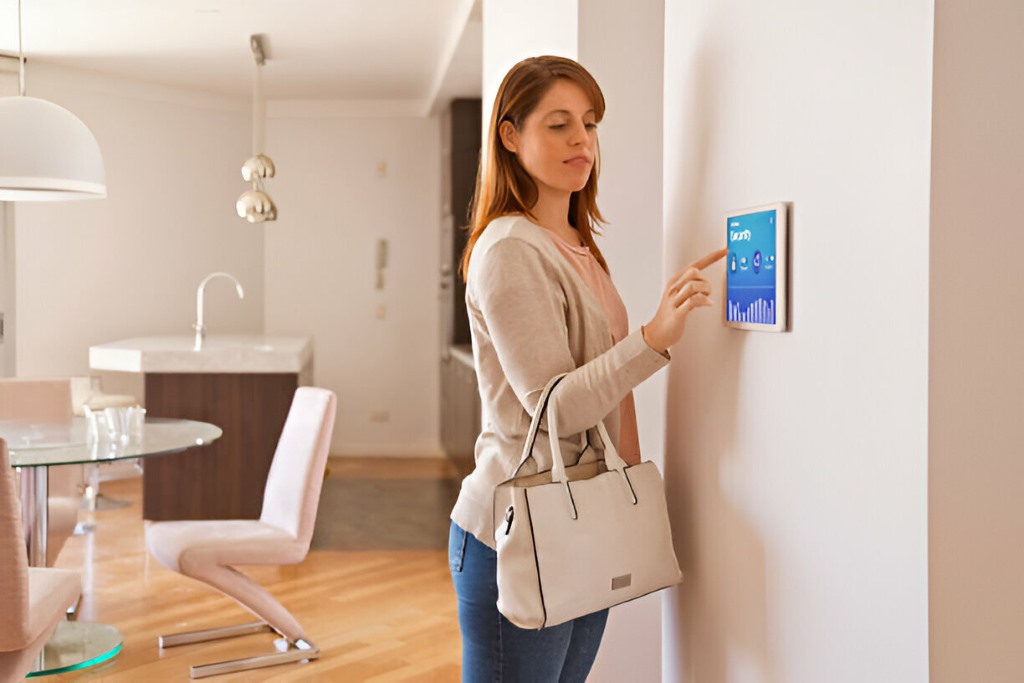In the era of rapid technological advancement, the concept of smart homes has transformed from a futuristic fantasy into a tangible reality. Home automation systems have revolutionized the way we interact with our living spaces, offering unparalleled convenience, efficiency, and security.
From controlling household appliances with a simple voice command to monitoring energy usage remotely, the possibilities are endless. In this article, we delve into the myriad benefits of embracing home automation technology and how it enhances our daily lives.
The Evolution of Smart Home Technology
The journey towards smart homes began with the advent of basic home automation installation systems, which allowed homeowners to automate repetitive tasks such as turning lights on and off or adjusting the thermostat.
However, with advancements in artificial intelligence (AI), machine learning, and the Internet of Things (IoT), today’s smart home systems are more sophisticated than ever before.

Enhanced Convenience and Comfort
One of the most significant advantages of home automation systems is the unparalleled convenience they offer. Imagine being able to control every aspect of your home environment with a single tap on your smartphone or a voice command to your virtual assistant.
From adjusting the temperature to dimming the lights, you have complete control over your surroundings, making everyday tasks effortless and enjoyable.
Energy Efficiency and Sustainability
Home automation systems play a crucial role in promoting energy efficiency and sustainability. By intelligently managing energy usage, such as optimizing heating and cooling schedules based on occupancy patterns or automatically turning off lights in unoccupied rooms, these systems help reduce energy waste and lower utility bills.
Additionally, some advanced systems can integrate renewable energy sources such as solar panels, further reducing carbon footprint and reliance on fossil fuels.
Safety and Security
Security is a top priority for homeowners, and home automation systems offer an array of features to enhance safety and protect property.
From smart locks and surveillance cameras to motion sensors and smoke detectors, these systems provide real-time monitoring and alerts, allowing homeowners to respond promptly to any potential threats or emergencies, even when they’re away from home.
Moreover, the ability to remotely control and automate flood lighting and blinds can deter burglars by creating the illusion of occupancy.
Seamless Integration and Interoperability
One of the key strengths of modern home automation systems lies in their ability to seamlessly integrate with various devices and platforms, creating a cohesive ecosystem that enhances user experience.
Whether you prefer Amazon Alexa, Google Assistant, or Apple HomeKit, these systems offer compatibility with a wide range of smart devices, allowing you to mix and match components to suit your preferences and needs.
Furthermore, the rise of interoperability standards such as Zigbee and Z-Wave technology ensures that devices from different manufacturers can communicate and work together harmoniously.

Customization and Personalization
Home automation systems are highly customizable, allowing homeowners to tailor their smart homes to meet their unique requirements and preferences.
Whether you’re a tech-savvy enthusiast looking to automate every aspect of your home or a minimalist seeking simplicity and elegance, there’s a solution to suit every lifestyle.
From creating custom scenes and schedules to setting up personalized voice commands, the possibilities are endless, ensuring that your smart home reflects your individuality.
Remote Monitoring and Accessibility
One of the greatest advantages of home automation systems is the ability to monitor and control your home remotely, providing peace of mind and flexibility, especially for frequent travelers or busy professionals.
Whether you’re halfway across the world or simply lounging on the couch, you can check the status of your home, adjust settings, and receive alerts in real time via your smartphone or tablet. This level of accessibility ensures that you’re always connected and in control, no matter where life takes you.
Cost-Effectiveness and Long-Term Savings
While the initial investment in a home automation system may seem daunting, the long-term benefits far outweigh the costs. By optimizing energy usage, enhancing security, and reducing maintenance expenses, these systems can lead to significant savings over time.
Moreover, the added convenience and comfort they provide can improve overall quality of life, making them a worthwhile investment for homeowners seeking to future-proof their properties and enhance their resale value.
Challenges and Considerations
Despite the numerous benefits of home automation systems, there are some challenges and considerations to keep in mind.
Security and privacy concerns, interoperability issues, and the learning curve associated with adopting new technology are common hurdles that homeowners may face.
It’s essential to research thoroughly, choose reputable vendors, and take proactive measures to safeguard your smart home against potential threats and vulnerabilities.

Conclusion
In conclusion, home automation systems have transformed the way we live, offering unparalleled convenience, efficiency, and security. From enhanced comfort and energy savings to seamless integration and remote accessibility, the benefits are undeniable.
As technology continues to evolve, the possibilities for smart homes are limitless, promising a future where our living spaces are truly intelligent, responsive, and tailored to our needs.
Embracing home automation is not just about embracing technology; it’s about embracing a smarter, more connected way of life.



